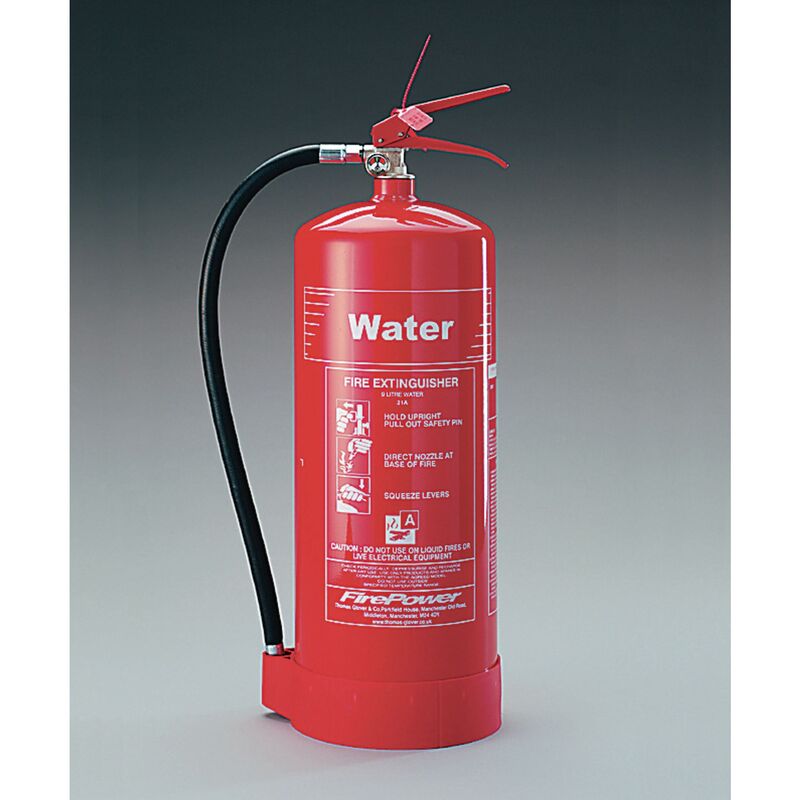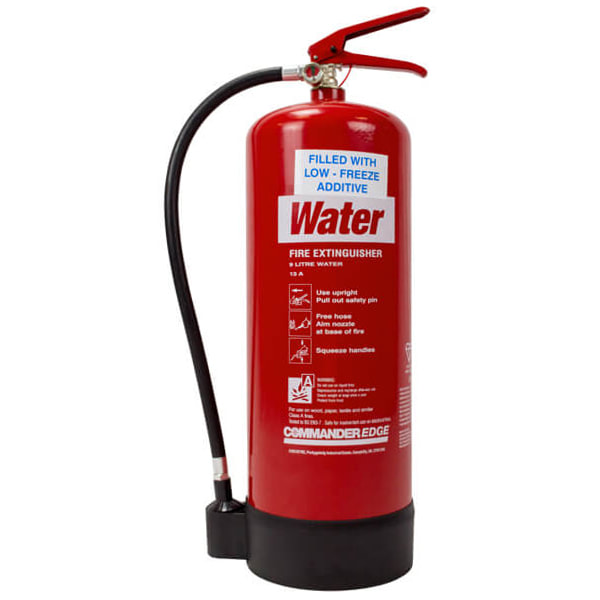|
Water fire extinguishers are extremely common this is because they are the cheapest to buy, replace and refill. Using water as the extinguishing agent is cost effective, good for the environment and safe because they don’t release any toxic agents just water.
Who should use them? Water fire extinguishers are commonly found in shops and warehouses, due to the high level of packaging, paper, wood and fabric in the stock. However, many other businesses choose to have a water fire extinguisher present simply because they will be cheaper to use and replace than multi-class extinguishers. How do they work? Remember the fire triangle? Fires need heat, fuel and oxygen. Water fire extinguishers work by cooling the fire down, thus removing heat from the combustion. One of the key benefits of water fire extinguishers is reducing the likelihood of re-ignition. What about water additive fire extinguishers? These extinguishers have a special additive chemical in the water. This additive increases the flame knock-down rate. So if you have a water extinguisher and water additive fire extinguisher that are the same size, the water fire extinguisher will have a higher fire rating, and will therefore be able to fight a larger fire more effectively. However water additive fire extinguishers are more expensive to buy and refill. Don’t use water extinguishers on electrical appliances Don’t use water fire extinguishers on electrical appliances; remember, water and electricity do not mix well. Don’t use water extinguishers on hot fat fires Water and cooking oil/grease don’t mix either. Use a water extinguisher to fight a kitchen fire, and you’ll simply end up spreading it further. Don’t use water extinguishers on flammable liquid fires Water and liquids don’t mix either, again the water will act as an accelerant spreading the fire. How to recognise them Water fire extinguishers can be easily identified by their white label and red writing. Water additive fire extinguishers use the converse colours; a red label with white writing.
4 Comments
27/5/2021 04:08:06 pm
Thanks for the tip to avoid using water extinguishers on flammable liquid fires. A ton of people might assume that any fire extinguisher would work. I'd like to take a fire safety class to learn about more situations like this.
Reply
23/3/2023 01:08:36 am
Great tip about making sure you keep electricity from water. My wife and I need to get a fire extinguisher for the kitchen. My daughter started a small fire in there on accident yesterday.
Reply
5/5/2023 06:03:22 pm
It's helpful to know that warehouses and shops benefit from water fire extinguishers. My uncle's starting a warehouse business in a few months, so right now, he's focused on fireproofing the place, and I think your guide will help him. I appreciate your advice on how warehouses have high levels of paper and other materials that are easier to put down during a fire with a water fire extinguisher.
Reply
I find it interesting when you said that water fire extinguishers will cool down the heat and remove the combustion causing the flames. It's just fascinating for people to have invented that type of equipment which can definitely save properties and lives. We actually plan to get one for our home, specifically in the kitchen. And we probably need to have fire extinguisher services to keep them maintained from time to time to ensure that they will work when incidents happen in the future.
Reply
Leave a Reply. |
AuthorSteve Celli is the Senior Tutor at Castle Hill Training, don't be fooled by his youthful good looks he has decades of experience in training. Archives
June 2024
Categories |
Proudly powered by Weebly




 RSS Feed
RSS Feed